Students for whom English is a second language
Overseas Students pursuing Undergraduate or Postgraduate coursework Studies at University of Divinity need to have achieved an average International English Language Test Score (IELTS) of at least 6.5, with no band under 6.0.
Overseas students pursuing Postgraduate Research degrees need to have achieved an average International English Language Test Score (IELTS) of at least 7.0, with a minimum of 6.5 in each area. In the University’s central office, [the Office of the Vice Chancellor] overseas student matters are the responsibility of the Director of Quality and Standards and are administered by the Overseas Students Officer.
Introduction to Tertiary Studies In Theology (NN1000Y)
This unit is offered for one and a half hours per week in both first and second semester, and is strongly recommended for students who have not previously done tertiary study. Normally students undertake the unit only for one semester. No fee is charged if studied along side unit(s) for credit.
Study load
The workload of an undergraduate student shall be a maximum of four (4) units per semester. This is a BTheol regulation. Any exception to this requirement must be approved by the Academic Dean. As a guide to students and lecturers, YTU accepts a system of demand hours. One class hour is considered as requiring two hours of private study for undergraduate students and three hours of study for postgraduate students.
Attendance at lectures and tutorials
Students are expected to attend all lectures and tutorials, as set out in unit outlines. Students should advise the lecturer if they are unable to attend. Attendance at the first lecture is particularly important. An absence of more than 25% of lectures or tutorials in a unit is normally regarded as too great to sustain active engagement in that unit and may impact adversely on the student’s learning.
Assessment
The University’s Learning and Teaching Committee advises the following regarding assessment:
Undergraduate Level 1: receipt of early feed-back via a piece of work not substantially counting towards assessment; assessment of more than one piece of work including a component under formal examination conditions; written work 3000 words and not in excess of 3500 words.
Undergraduate Level 2: written requirement 4000–4500 words
Undergraduate Level 3: written requirement 4500–5000 words
Postgraduate Foundational: written requirement 6000- 7,000 words
Postgraduate Elective & Capstone: written requirement 7000- 8,000 words
Each student will be assessed in the manner indicated in the particular unit outlines and in accordance with UD regulations where appropriate
Results are published according to the following grades for all UD degrees:
High Distinction = 85% +
Distinction = 75% – 84%
Credit = 65% – 74%
Pass = 50% – 64%
Fail = 0% – 49%
W = Withdrawal
Assessment Registration
In the first three weeks of the semester, students can withdraw from assessment without penalty. (No mark will appear on their record.)
Up to the end of the ninth teaching week in each semester, students can withdraw from assessment and they will be marked ‘W’ on their official transcript. Those who withdraw after this date will normally be marked ‘F’ (Fail).
Assignments
Assignments must be submitted by the date determined by the lecturer. The last day for assignments to be handed in is the last day of the examination session at the end of each semester. Any extension of time must be requested from the lecturer at least two days before the date on which the assignment is due. Extension beyond the final day of the examination period cannot be granted by the lecturer, but must be referred to the Academic Dean, and can only be granted on the basis of serious medical or pastoral grounds.
Students should keep a second copy of all assignments submitted. Students should keep copies of all written work for at least three months because all written materials that contribute toward assessment in degree units must be available for possible inspection by a second examiner outside YTU.
All assessment tasks must be submitted through Turnitin via ARK.
Style Guide
Assignments must be presented in the format prescribed in the Style guide.
The University of Divinity is committed to the use of one basic Style Guide. The referencing style observed by the University of Divinity is based on the latest version of the Chicago Manual of Style (17th ed. 2017). See: https://divinity.libguides.com/styleguide/home
Extensions of time
A lecturer’s extension may be granted for up to two weeks within the semester, if application is made before the due date of the assignment, and on adequate grounds.
Any extension beyond the examination period must be approved by the Academic Dean. The extension is recorded as an “E” on the student’s transcript until the assessment is complete. Other than in exceptional circumstances, as approved by the Academic Dean, students with this designation are required to complete the assigned requirements within 28 days of the conclusion of the examination period.
If a student has not sought an extension but still hands in a piece of work after the due date, and the lecturer accepts the late work, a penalty will be enforced as follows:
- Work submitted up to one week late without an official extension will normally have its recorded grade reduced by one level (e.g. Distinction to Credit), though such work passed by one examiner must have at least a Pass grade recorded.
- Work submitted later than one week but up to one month late without an official extension is normally awarded a Pass grade only, unless it fails to reach a Pass standard.
- For work submitted later than one month or on the last day of semester without an official extension, a Fail grade is normally recorded.
Examinations
Unmarked and unannotated copies of the Revised Standard Version (RSV) or the New Revised Standard Version (NRSV) must be used for all examinations in Biblical Studies.
Students for whom English is a Second Language
Students for whom English is a second language may take extra time for each written examination. In the first year of study, students are allowed fifty percent extra time. In subsequent years of study, students are allowed twenty five percent extra time. Such students may take a dictionary into the examination.
ARK: OUR LEARNING MANAGEMENT SYSTEM
In 2014, the University introduced a Learning Management System for use across all the Colleges of the University. The name given to the Learning Management System is ARK.
ARK is both a portal to access a variety of digital and online resources and the platform on which those resources reside. Every student is able to access the resources for the units in which they are enrolled through a password provided to them in conjunction with their enrolment. Lecturers upload tutorial readings and other resources for their particular unit(s). Assignments and essays will be submitted for grading through ARK (and thereby through Turnitin, our plagiarism detection software).
Further details how to access and use ARK are available via: https://divinity.edu.au/study/educational-it-systems/


